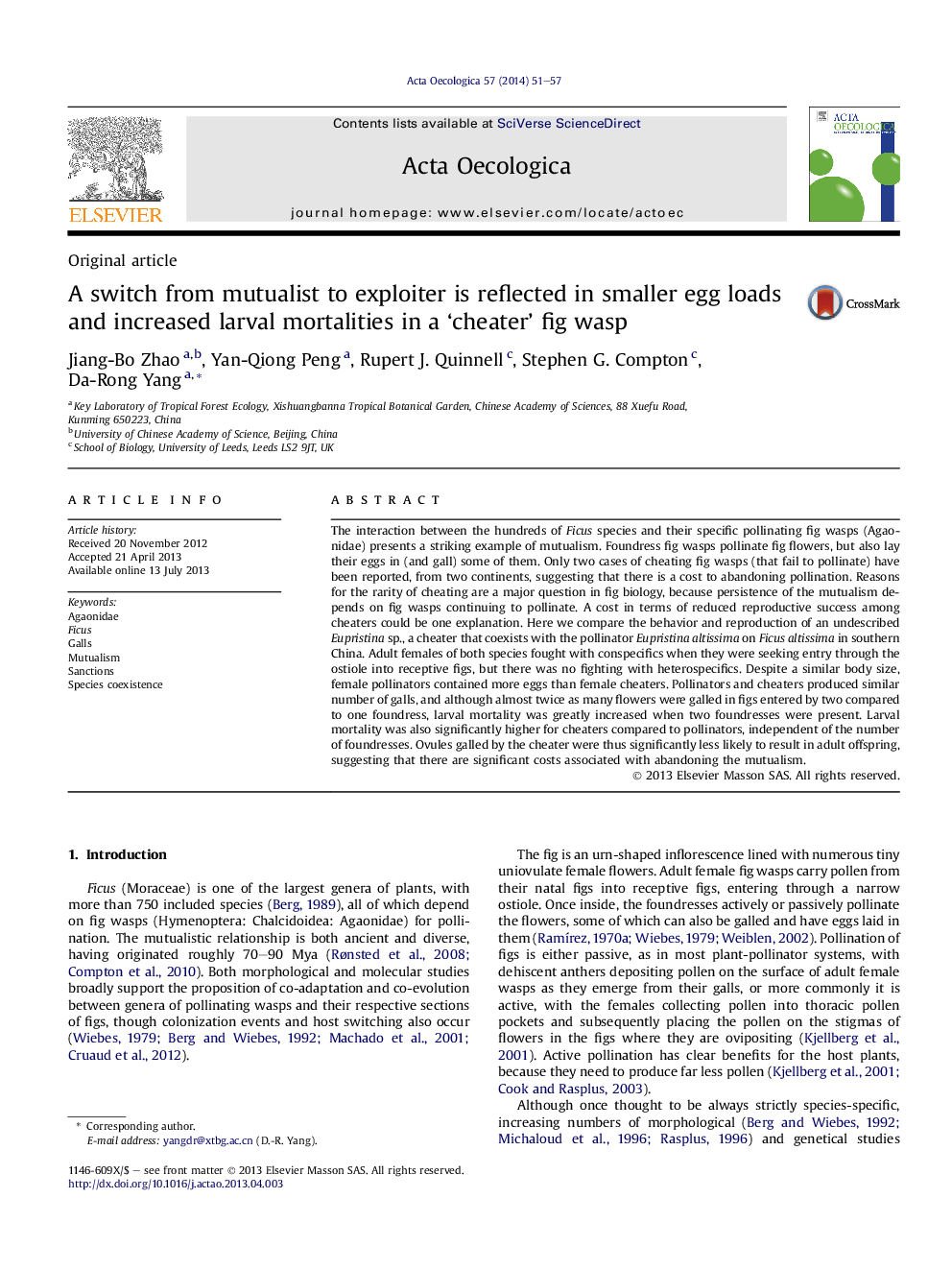| کد مقاله | کد نشریه | سال انتشار | مقاله انگلیسی | نسخه تمام متن |
|---|---|---|---|---|
| 4381038 | 1617714 | 2014 | 7 صفحه PDF | دانلود رایگان |

The interaction between the hundreds of Ficus species and their specific pollinating fig wasps (Agaonidae) presents a striking example of mutualism. Foundress fig wasps pollinate fig flowers, but also lay their eggs in (and gall) some of them. Only two cases of cheating fig wasps (that fail to pollinate) have been reported, from two continents, suggesting that there is a cost to abandoning pollination. Reasons for the rarity of cheating are a major question in fig biology, because persistence of the mutualism depends on fig wasps continuing to pollinate. A cost in terms of reduced reproductive success among cheaters could be one explanation. Here we compare the behavior and reproduction of an undescribed Eupristina sp., a cheater that coexists with the pollinator Eupristina altissima on Ficus altissima in southern China. Adult females of both species fought with conspecifics when they were seeking entry through the ostiole into receptive figs, but there was no fighting with heterospecifics. Despite a similar body size, female pollinators contained more eggs than female cheaters. Pollinators and cheaters produced similar number of galls, and although almost twice as many flowers were galled in figs entered by two compared to one foundress, larval mortality was greatly increased when two foundresses were present. Larval mortality was also significantly higher for cheaters compared to pollinators, independent of the number of foundresses. Ovules galled by the cheater were thus significantly less likely to result in adult offspring, suggesting that there are significant costs associated with abandoning the mutualism.
Figure optionsDownload as PowerPoint slide
Journal: Acta Oecologica - Volume 57, May 2014, Pages 51–57